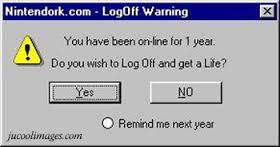I miss my mooc. It was good to feel part of the TOOC14 learning community, in particular from the student point of view. It’s a sign of positivity when you feel sad about an ending but I reached the point where something had to give. In this case it was the mooc. For the tutors at Oxford Brookes on TOOC14, here’s my feedback.
- I always felt my contributions were valued.
- I liked the individual-ness of responses.
- It was helpful to have additional questions built in. I felt tutors were interested in what I had to say. These questions also stretched my thinking and enhanced the learning.
- What I really liked was knowing tutors had experience and expertise in managing online communication. As a consequence I felt it was ok not to know something, ok to get it wrong or even not get it all.
- On TOOC14 I felt a real sense a community of shared practice and inquiry was building up.
It was a mooc but not as you might know it from coursera, udacity or khan academy. Not all but mostly, they can be impersonal. You feel like a grain of sand on a beach.
Online education is never an easy option. It takes time and commitment for staff and for students. Resources need redesigning. Retention is low. Text talk easily misunderstood. The advantages and disadvantages of virtual learning environments are about even. I think the team at Oxford Brookes have got it right. I’d have liked to complete.
I’m using the phrase tutors but am not sure this is the right word. When it comes to online ‘tutoring’ what should we be called? When the pay scale says Lecturer, how does that translate to online environments. I’ve submitted a conference proposal this week suggesting greater attention be paid to the role of e-teacher. The word e-learning has worked its lexographical way into the vocabulary of education but we rarely come across e-tutors or e-lecturers.
Who am I online?
Teacher, Tutor, Trainer? Lecturer? Facilitator? Moderator? Just someone passing through?
The pedagogy of uncertainty which underpins all online courses is also one of invisibility with regard to participants. I wonder if this is indicative of the lower status attached to virtual learning environments. It feels like they remain the second best option. Learning online is what you do if you can’t get on campus. Supplementary. Other. Students are students where ever they are but the identity of those who virtually teach remains much more of a mystery.




